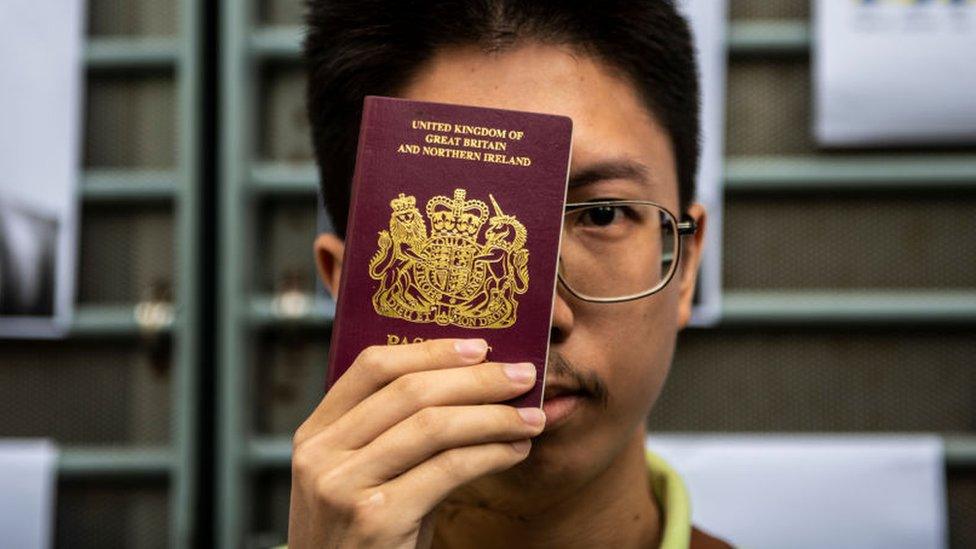Hong Kong children's shop told to remove protester statue
- Published
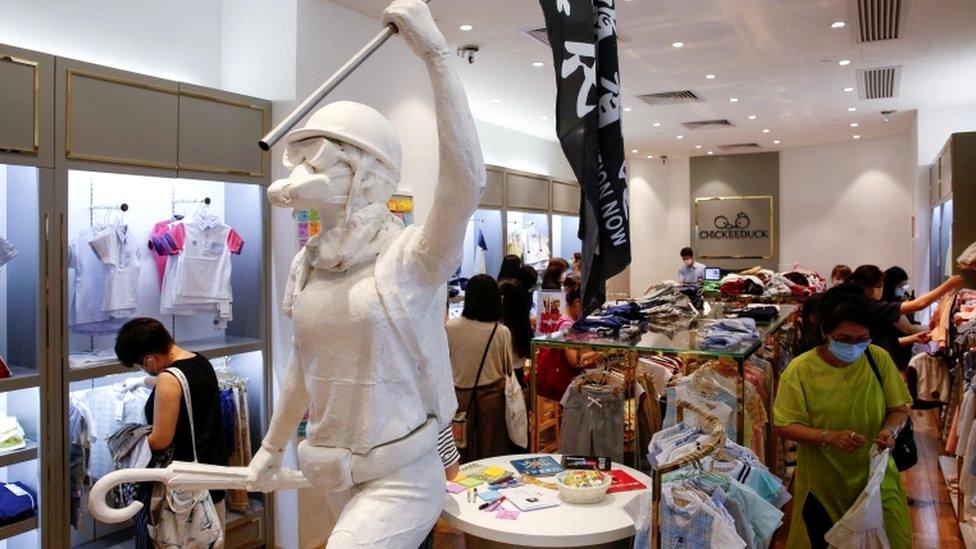
The statue holds a flag bearing the words: "Free Hong Kong, revolution now"
A shop owner in Hong Kong is refusing an order to remove a life-sized statue of a female anti-government protester from one of his stores.
Herbert Chow has been told by landlords at a location of one of his Chickeeduck children's clothing shops that the figure must be taken down.
But the "Lady Liberty" statue has been popular with shoppers amid an informal boycott of pro-Chinese businesses.
Hong Kong has witnessed months of unrest and mass protests.
Demonstrations in the former British territory began last year in response to an extradition law planned by Beijing, but the unrest soon morphed into a larger vehicle for anti-China and pro-democracy sentiment.
The Chickeeduck store's white statue was installed on Tuesday and shows a demonstrator wearing a helmet, gas mask and goggles. In one hand she carries an umbrella - a symbol of mass protests in 2014 - and in the other a flag that reads: "Free Hong Kong, revolution now."
In a letter verified by Reuters news agency, the mall's managing company said a clause in the contract specified that any unlicensed "exhibition" could break both the law and the tenancy agreement.
The shop's 56-year-old owner, however, has said he "will not remove it".
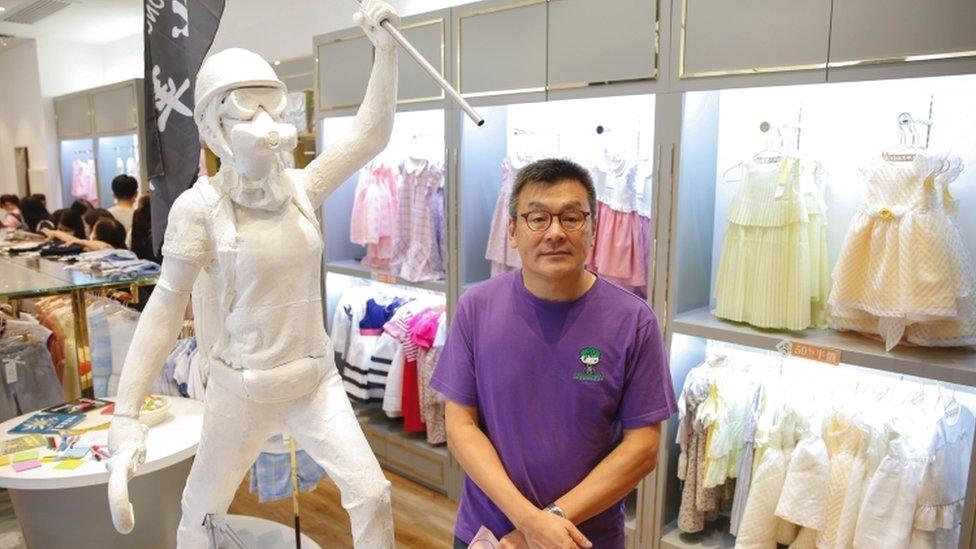
Herbet Chow says he will not remove the statue
"The revolution that we need now is the persistent fight for... the freedom of speech, press, expression and creativity, and not to have to put up with anything that you think is unjust," Mr Chow told Reuters.
He is due to meet the mall's owners on Friday to discuss an extension to his lease, which ends this month.
Activists and protesters in Hong Kong have been supporting so-called "yellow" businesses, which have supported the pro-democracy movement.
Although protests in Hong Kong began a year ago, tensions have surfaced again in recent weeks over a highly controversial national security bill.
Many fear the proposal could mean an end to much of the territory's autonomy, which it has enjoyed under an agreement signed when Hong Kong was returned to China from British control in 1997.
Although the creation of a national security law formed part of the agreement, a lack of popularity has meant that it has never been implemented.
The history behind Hong Kong's identity crisis and protests - first broadcast November 2019
- Published19 March 2024
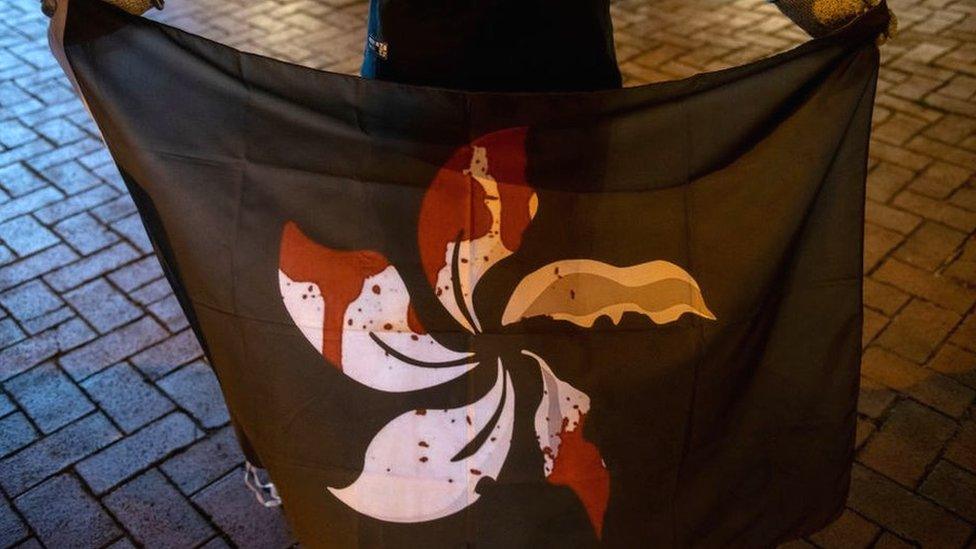
- Published24 May 2020
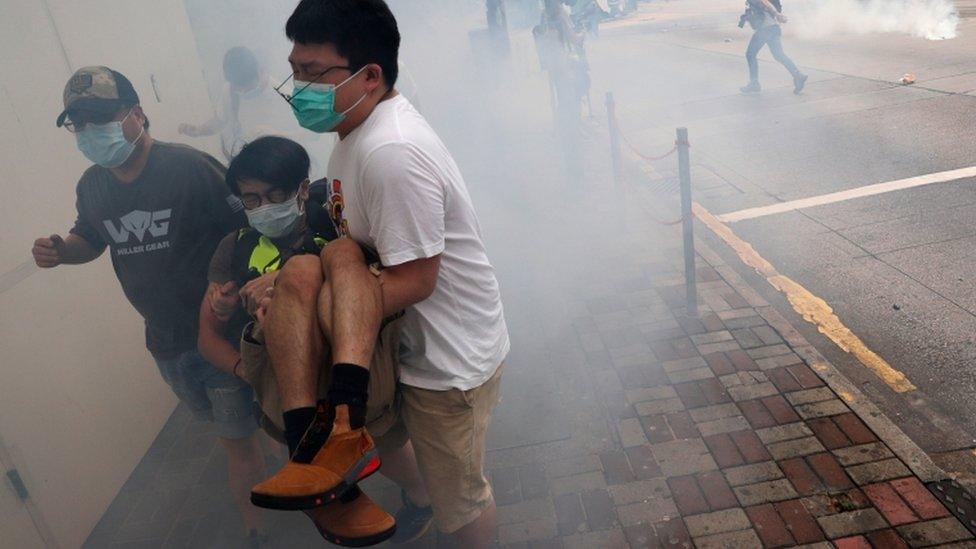
- Published12 June 2020
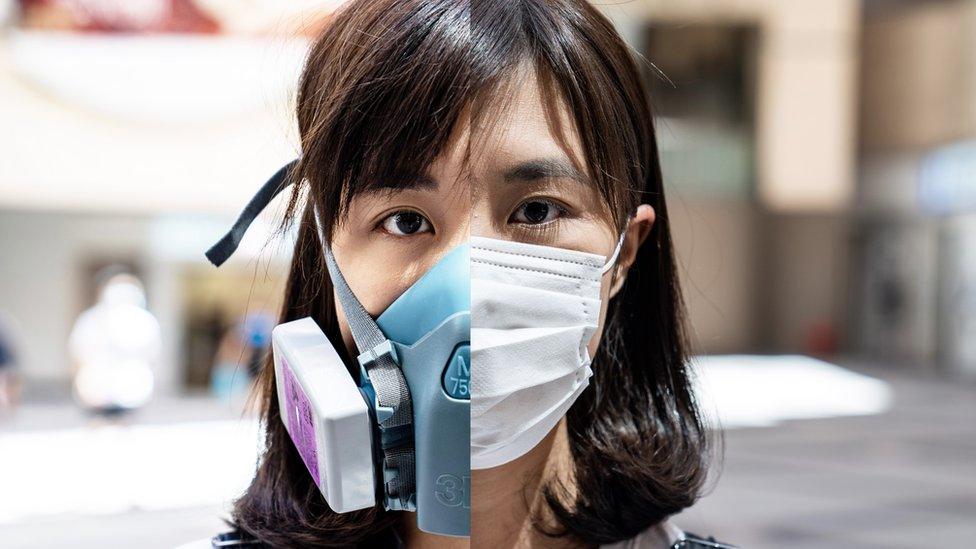
- Published3 June 2020
